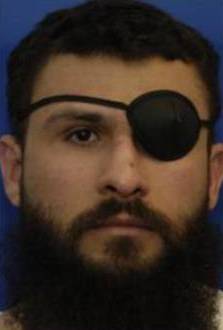
Abu Zubaydah is a Palestinian citizen and alleged terrorist born in Saudi Arabia currently held by the U.S. in the Guantanamo Bay detention camp in Cuba. He is held under the authority of Authorization for Use of Military Force Against Terrorists (AUMF).

Khalid Sheikh Mohammed, often known by his initials KSM, is a Pakistani terrorist and the former Head of Propaganda for al-Qaeda. He is currently held by the United States at the Guantanamo Bay detention camp under terrorism-related charges. He was named as "the principal architect of the 9/11 attacks" in the 2004 9/11 Commission Report.
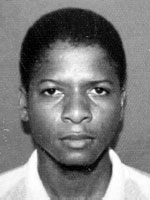
Ahmed Khalfan Ghailani is a Tanzanian conspirator of the al-Qaeda terrorist organization convicted for his role in the bombing of embassies in Kenya and Tanzania. He was indicted in the United States as a participant in the 1998 U.S. embassy bombings. He was on the FBI Most Wanted Terrorists list from its inception in October 2001. In 2004, he was captured and detained by Pakistani forces in a joint operation with the United States, and was held until June 9, 2009, at Guantanamo Bay detention camp; one of 14 Guantanamo detainees who had previously been held at secret locations abroad. According to The Washington Post, Ghailani told military officers he is contrite and claimed to be an exploited victim of al-Qaeda operatives.
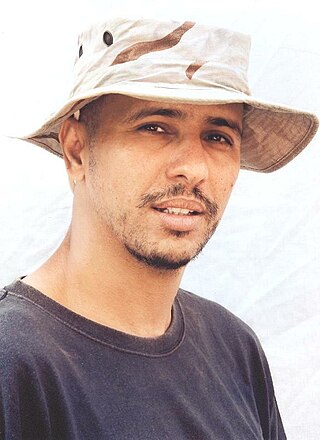
Mohamedou Ould Slahi is a Mauritanian engineer who was detained at Guantánamo Bay detention camp without charge from 2002 until his release on October 17, 2016.
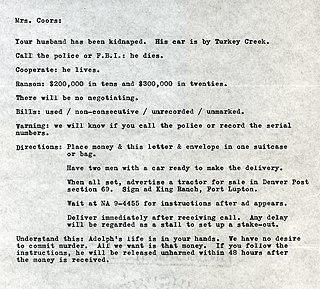
Extraordinary rendition is a euphemism for state-sponsored kidnapping in another jurisdiction and transfer to a third state. The phrase usually refers to a United States-led program used during the War on Terror, which had the purpose of circumventing the source country's laws on interrogation, detention, extradition and/or torture. Extraordinary rendition is a type of extraterritorial abduction, but not all extraterritorial abductions include transfer to a third country.
Extrajudicial prisoners of the United States, in the context of the early twenty-first century War on Terrorism, refers to foreign nationals the United States detains outside of the legal process required within United States legal jurisdiction. In this context, the U.S. government is maintaining torture centers, called black sites, operated by both known and secret intelligence agencies. Such black sites were later confirmed by reports from journalists, investigations, and from men who had been imprisoned and tortured there, and later released after being tortured until the CIA was comfortable they had done nothing wrong, and had nothing to hide.

Mohammed Farik Bin Amin, alias Zubair Zaid, is a Malaysian who is alleged to be a senior member of Jemaah Islamiyah and al Qaeda. He is currently in American custody in the Guantanamo Bay detention camp. He is one of the 14 detainees who had previously been held for years at CIA black sites. In the ODNI biographies of those 14, Amin is described as a direct subordinate of Hambali. Farik Amin is also a cousin of well-known Malaysian terrorist Zulkifli Abdhir.
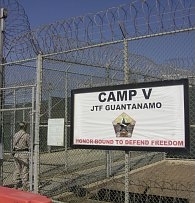
The Guantanamo Bay detention camp is a United States military prison within the Guantanamo Bay Naval Base, also referred to as Gitmo, on the coast of Guantánamo Bay in Cuba. As of April 2023, of the 779 people detained there since January 2002 when the military prison first opened after the September 11 attacks, 740 had been transferred elsewhere, 30 remained there, and nine had died while in custody.

Anwar Nasser Abdulla al-Awlaki was an American-Yemeni Islamic scholar and lecturer who was killed in 2011 in Yemen by a U.S. government drone strike ordered by President Barack Obama. Al-Awlaki became the first U.S. citizen to be targeted and killed by a drone strike from the U.S. government. U.S. government officials argued that Awlaki was a key organizer for the Islamist terrorist group al-Qaeda, and in June 2014, a previously classified memorandum issued by the U.S. Department of Justice was released, justifying al-Awlaki's death as a lawful act of war. Civil liberties advocates have described the incident as "an extrajudicial execution" that breached al-Awlaki's constitutional right to due process, including a trial.
Majid Shoukat Khan is a Pakistani who was the only known legal resident of the United States held in the Guantanamo Bay Detainment Camp. He was a "high value detainee" subject to “enhanced interrogation” by the U.S. intelligence forces.

John Owen Brennan is a former American intelligence officer who served as the Director of the Central Intelligence Agency (CIA) from March 2013 to January 2017. He served as chief counterterrorism advisor to U.S. President Barack Obama, with the title Deputy National Security Advisor for Homeland Security and Counterterrorism, and Assistant to the President. Previously, he advised Obama on foreign policy and intelligence issues during the 2008 election campaign and presidential transition.
"Enhanced interrogation techniques" or "enhanced interrogation" was a program of systematic torture of detainees by the Central Intelligence Agency (CIA), the Defense Intelligence Agency (DIA) and various components of the U.S. Armed Forces at remote sites around the world—including Bagram, Guantanamo Bay, Abu Ghraib, and Bucharest—authorized by officials of the George W. Bush administration. Methods used included beating, binding in contorted stress positions, hooding, subjection to deafening noise, sleep disruption, sleep deprivation to the point of hallucination, deprivation of food, drink, and medical care for wounds, as well as waterboarding, walling, sexual humiliation, rape, sexual assault, subjection to extreme heat or extreme cold, and confinement in small coffin-like boxes. A Guantanamo inmate's drawings of some of these tortures, to which he himself was subjected, were published in The New York Times. Some of these techniques fall under the category known as "white room torture". Several detainees endured medically unnecessary "rectal rehydration", "rectal fluid resuscitation", and "rectal feeding". In addition to brutalizing detainees, there were threats to their families such as threats to harm children, and threats to sexually abuse or to cut the throat of detainees' mothers.

After the Central Intelligence Agency lost its role as the coordinator of the entire United States Intelligence Community (IC), special coordinating structures were created by each president to fit his administrative style and the perceived level of threat from terrorists during his term.

Ali H. Soufan is a Lebanese-American former FBI agent who was involved in a number of high-profile anti-terrorism cases both in the United States and around the world. A 2006 New Yorker article described Soufan as coming closer than anyone to preventing the September 11 attacks and implied that he would have succeeded had the CIA been willing to share information with him. He resigned from the FBI in 2005 after publicly chastising the CIA for not sharing intelligence with him which could have prevented the attacks.

The Federal Investigation Agency is a border control, criminal investigation, counter-intelligence and security agency under the control of the Interior Secretary of Pakistan, tasked with investigative jurisdiction on undertaking operations against terrorism, espionage, federal crimes, smuggling as well as infringement and other specific crimes.

On May 1, 2010, a terrorist attack was attempted in Times Square in Manhattan, New York. Two street vendors alerted NYPD after they spotted smoke coming from a vehicle, and a car bomb was discovered. The bomb had been ignited, but failed to explode, and was disarmed before it caused any casualties. Two days later, federal agents arrested Faisal Shahzad, a 30-year-old Pakistan-born resident of Bridgeport, Connecticut, who had become a U.S. citizen in April 2009. He was arrested after he had boarded Emirates Flight 202 to Dubai at John F. Kennedy International Airport. He admitted attempting the car bombing and said that he had trained at a Pakistani terrorist training camp, according to U.S. officials.
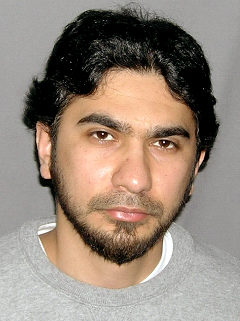
Faisal Shahzad is a Pakistani-American citizen who was arrested for the attempted May 1, 2010, Times Square car bombing. On June 21, 2010, in Federal District Court in Manhattan, he confessed to 10 counts arising from the bombing attempt. Throughout his court appearance, Shahzad was unrepentant. The United States Attorney indicated there was no plea deal, so Shahzad faced the maximum sentence, a mandatory life term.
The British Indian Ocean Territory, sometimes known as the Chagos Archipelago has had many threats of occupation by various groups, especially since the Depopulation of Chagossians from the Chagos Archipelago, as well as being a joint UK-US facility that is used in countering terrorism. The UK maintains that there is a low risk of terrorism in this territory.
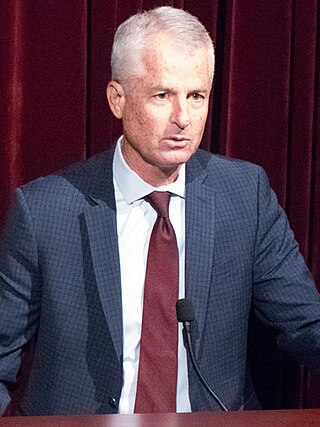
John Philip Mudd is an American media commentator and former counterterrorism official in the Central Intelligence Agency (CIA) and Federal Bureau of Investigation (FBI).
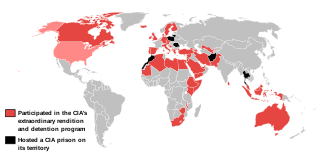
The CIA controls black sites used by the U.S. government in its War on Terror to detain people deemed to be enemy combatants.
















